Putting people at the center of the National Reform Program

Egypt has progressed towards comprehensive reform, prioritizing advancement of the economy as a key driver of development, while putting Egyptians at the centre of the development process at the same time. This preserved development gains for all Egyptians in a decade that has witnessed important changes in Egypt and was characterized by major political and socio-economic transformations—according to Egypt’s Human Development Report (HDR) 2021, entitled “Development, a Right for All: Egypt’s Pathways and Prospects.” The United Nations Development Programme (UNDP) and the Ministry of Planning and Economic Development in Egypt launched the report yesterday under the auspices of and in the presence of President Abdel Fattah El-Sisi, President of the Arab Republic of Egypt.
"The report we are launching today renews and confirms Egypt's commitment to a development approach that puts people at the centre of the development processes as the principal driver of and the primary stakeholder in its outcomes," said Ms. Randa Aboul-Hosn, UNDP Resident Representative in Egypt, adding that: "This is the human development approach advanced over the past thirty years in UNDP’s HDR, which now has become the main and most credible reference on development that all countries adopt and base their development planning and policy making on”.
This is the twelfth report in the series of national HDRs that Egypt has been producing since 1994, and it comes after a 10-year break, since its last issue was released in 2010. The report covers a critical decade (2011-2020) in Egypt’s modern history which has witnessed two popular revolutions in 2011 and 2013, a new constitution and strong economic and social reforms.
Investing in human capital
The report portrays Egypt's investment in developing its human capital in the areas of education, health, and adequate housing. Between 2010 and 2020It it reports improvement in indicators of access to pre-university education, with enrolment rates increasing at all levels of education and the gender gap in pre-university education levels eliminated as detailed data on enrolment rates for boys and girls between 2010/2011 and 2019/2020 demonstrate.
The health of Egyptians in general has also improved, and new innovative health programmes and initiatives have led to an increase in the performance rates of units across Egypt’s health system.
A package of health initiatives has contributed to radical improvements in Egyptians’ health such as ‘100 million Healthy Lives’ Initiative and the Egypt’s globally recognized experience in fighting Hepatitis C, with prevalence rates among the highest worldwide.
Egypt was one of the world's leading countries that incorporated the "right to housing" into its constitution. In this context, Egypt worked to provide adequate housing for all through extensive programmes to support social housing and urban development to provide decent housing for low-income groups; develop areas that were unplanned and lacking services; and increase the coverage of drinking water and sanitation services. The number of beneficiaries of the social housing programme until June 2020 has exceeded 312,000, who received cash support from the Social Housing Fund amounting to 4.9 billion pounds, and real estate financing in the range of 30.8 billion pounds.
Advancing the economy and developing the social protection system
The notes the success of Egypt’s Economic and Social Reform Programme in improving macroeconomic indicators, reducing public debt rates, closing the balance of payments gap, and restoring flows of foreign direct investment. These reforms have contributed to preparing the Egyptian economy to face COVID-19.
The report underscores Egypt’s adoption of a new philosophy to achieve social justice and enhance human security—shifting from protection to empowerment, in conjunction with economic reforms. Egypt dealt with the issue of social protection from a comprehensive inclusive perspective and worked
to expand citizens' options by enhancing their capacities and empowering them to access assets and resources.
Promoting environmental sustainability
The report registers that Egypt has worked to maximize benefits from its natural assets and has begun to adopt risk-informed environmental management approaches. The national Sustainable Development Strategy: Egypt’s Vision 2030 has emphasized the significance of integrating environmental dimensions of sustainable development into various economic sectors.
Egypt has also worked to rationalize water use and improve the irrigation system through a huge project for lining canals and exploring non-traditional solutions to secure its future water needs, such as desalination of sea water and recycling irrigation and waste waters.
Empowering women and achieving gender equality
Over the past few years, Egypt has sought to promote the integration of women and their issues in policymaking, and to enhance their political, economic, and social roles. Since 2014, Egypt has witnessed significant efforts in promoting the role of women and empowering them as an indispensable partner for achieving sustainable development. In 2017, Egypt adopted a national strategy for women's empowerment at all levels, political, economic, social, and protection—a first of its kind—within the framework of the 2030 Sustainable Development Goals.
Egypt has also advanced in supporting women’s entrepreneurship, especially in micro and small businesses, where the number of women beneficiaries of microfinancing has exceeded twice the number of beneficiaries. In addition, the gender gap in pre-university education has been eliminated between the years 2010-2020 and women's health witnessed radical improvements with the launch of the Women's Health Campaign in Egypt; women life expectancy rate at birth increased, and maternal mortality rates per 100,000 live births witnessed a remarkable decrease from 54 to 44 during the years 2010 and 2018 respectively.
Governance
The report traces Egypt's endeavours to strengthen governance and to develop and reform the state's administrative apparatus --and financial management systems— to raise performance, effectiveness, and efficiency in providing basic services, through clear policies and programmes across various fields, issues, and sectors. In 2014, Egypt adopted its Vision for Administrative Reform to reach an efficient and effective administrative apparatus characterized by good governance and accountability, contributing to the achievement of national development goals, and raising the level of citizens’ satisfaction. The move to the new administrative capital is part of an effort to bring about a qualitative leap in the Egyptian administrative system.
A new Decade of Action (2021-2030)
The report confirms that development challenges can be faced by setting priorities and strengthening Egypt’s pragmatic capacities to complete its development path to guarantee the right to development for all Egyptians during a new Decade of Action (2021-2030) in light of the close alignment of Egypt’s Vision 2030 plan and the global Agenda 2030 for Sustainable Development, and the Africa 2063 agenda. The report reviews practical steps to guarantee the right to development, including strengthening financing for development; developing the knowledge base for sound development planning; expanding and accelerating digital transformation in public services and financial transactions; and the development of executive institutions to enhance the efficiency and quality of public service provision
For more information on Egypt Human Development Report 2021



















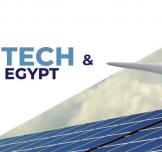


































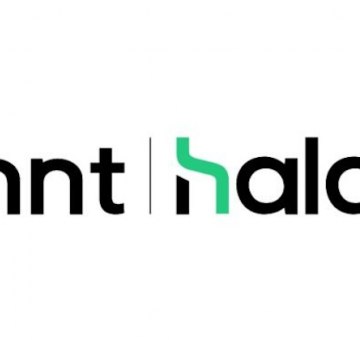
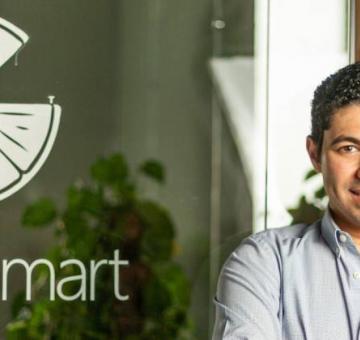










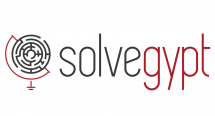


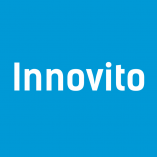
EgyptInnovate site is not responsible for the content of the comments